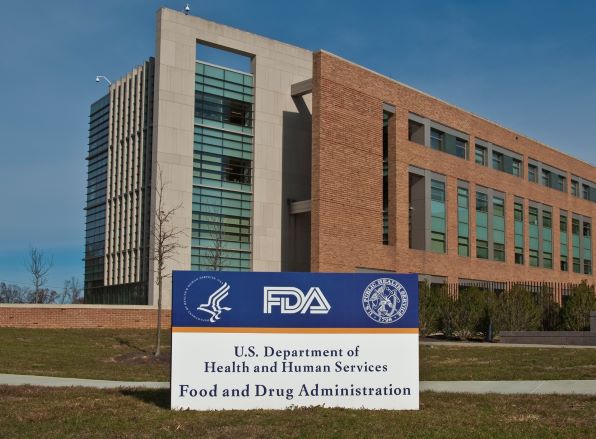Committee’s recommendation to reject as therapy the psychedelic drug MDMA, also known as the “date rape” drug Ecstasy, comes after evidence from clinical trials was deemed insufficient to establish safety or effectiveness.
A U.S. Food and Drug Administration (FDA) advisory committee voted overwhelmingly against use of the psychedelic drug MDMA, also known as the “date rape” drug Ecstasy or Molly, as treatment for post-traumatic stress. The committee found that the evidence presented in its June 4 hearing in support of the treatment did not demonstrate sufficient safety and efficacy. The committee’s recommendation goes to the FDA for a final decision, which is expected in mid-August. If the FDA concurs, it would end the first attempt to gain FDA approval for a psychedelic drug treatment.
The FDA’s Psychopharmacologic Drugs Advisory Committee heard from representatives of Lykos Therapeutics on the results of the company’s clinical trials, in which patients suffering from post-traumatic stress were given MDMA in conjunction with psychotherapy. With psychotherapists present in the treatment sessions, patients were encouraged to discuss emotionally-charged memories while under the influence of the drug.

Committee members voted 9-2 that the evidence presented did not adequately establish the effectiveness of the MDMA-assisted psychotherapy and further voted 10-1 that the risks of the treatment would outweigh the benefits even with a risk mitigation plan proposed by the FDA.
A briefing document prepared by FDA staff and issued prior to the hearing pointed to a number of drawbacks in the data from the Lykos clinical trials. Claims of efficacy could be skewed by a large majority of trial participants knowing whether they had received MDMA or placebo, the staff observed. The cardiovascular risks of MDMA, which acts as a stimulant, and the underreporting of adverse effects were also concerns.
During the hearing, committee members and testifying members of the public referred to a troubling, alleged incident of a female patient under the influence of MDMA being sexually abused during a therapy session. A video of the session reportedly shows the MDMA-intoxicated patient being pinned down, cuddled and stroked by a male therapist and his therapist wife.
Committee members also discussed allegations of ethical misconduct in the clinical trials, including claims that participants were pressured not to report adverse effects.
MDMA is still classified by the U.S. Drug Enforcement Administration (DEA) as a Schedule 1 controlled substance, defined as having no currently accepted medical use and a high risk of abuse and dependency. The National Institute on Drug Abuse (NIDA) lists lowered inhibition, increased heart rate and blood pressure, muscle tension, nausea, faintness, chills or sweating, and a sharp rise in body temperature leading to kidney failure or death as potential short-term adverse effects of MDMA.
The National Affairs Office of the Citizens Commission on Human Rights (CCHR) submitted a statement to the FDA during the public comment period prior to the hearing, which cited safety concerns over known adverse effects of MDMA, as delineated by NIDA, and referenced the lived experience of MDMA users, as reported in readers’ comments in response to a recent New York Times article on MDMA.
Among the readers’ comments are reports from MDMA users of having experienced an inability to move or stand up, “thirty-six hours of total body tension with uncontrollable clenching and grinding of teeth,” an after-effect of feeling “bleak and depressed,” a months-long “flat life,” and a sexual situation that would not otherwise have been engaged in.
Depression occurring several days following use was mentioned by a number of commenters, with one user writing: “The comedown was so brutal a couple of days later that I could never go through it again. I was literally sitting in my office and felt an uncontrollable need to cry for absolutely no reason. It was bad!” Though anecdotal, these reports are an indication of the real-life experiences of MDMA users outside of carefully controlled clinical trial settings.
The push for approval of psychedelics as treatment for post-traumatic stress arose from the failure of psychiatry’s mind-altering psychotropic drugs and psychotherapy to adequately treat the condition. Giving military veterans suffering from post-traumatic stress an alternative to current treatment options has been used as a prime rationale in efforts by pro-psychedelics groups to gain approval for psychedelic-assisted psychotherapy and was frequently mentioned in the committee hearing. Companies developing psychedelic drugs for therapy have attracted millions of dollars from investors hoping to cash in on a “psychedelic revolution.”
Using military personnel as guinea pigs for psychiatric drugging has a long history, dating back at least as far as the period of 1955 to 1967, when the U.S. Army conducted extensive mind control and brainwashing experiments with LSD on soldiers. The frequent and severe complications that resulted have been downplayed in more recent accounts of the psychiatric testing, according to psychiatrist Colin Ross, M.D., who published a report on the experiments in the journal History of Psychiatry. “In view of the current resurgence of interest in hallucinogens within psychiatry, the sanitized version of the effects of LSD exposure on US soldiers needs to be replaced with a more accurate account,” Ross wrote.
In 2014, with more than 60% of suicides in the military committed by those on antidepressants or recently undergoing outpatient psychiatric care, CCHR produced its acclaimed documentary, “Hidden Enemy: Inside Psychiatry’s Covert Agenda,” which tracks the history of psychiatric drug experiments in the military and links the rising rates of psychiatric drug prescriptions in the military to the high rate of veteran suicides.
“The psychiatric industry’s pressure on the FDA for approval of psychedelic drugs as an answer to failed psychiatric treatments is not a reason to expose military veterans and others suffering from post-traumatic stress to the risks of retraumatization and further damage to their mental health from MDMA and psychedelic-assisted psychotherapy,” said Anne Goedeke, president of the CCHR National Affairs Office.
